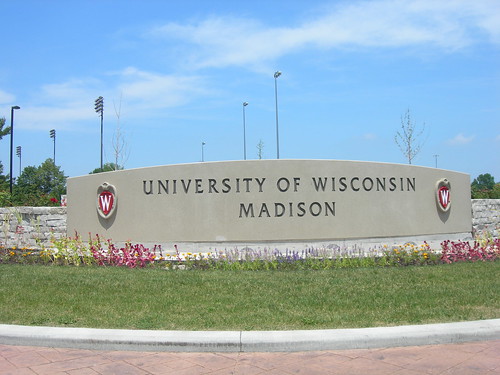 Recently, the University of Wisconsin-Madison gave the student organization Atheists, Humanists, and Agnostics (AHA) $69,000, the largest amount of grant money ever given to a non-theistic, student-led organization by a college or university. In return the university expects that the group provides programs and services to all enrolled students, that the university itself lacks. Religion News Service explains:
Recently, the University of Wisconsin-Madison gave the student organization Atheists, Humanists, and Agnostics (AHA) $69,000, the largest amount of grant money ever given to a non-theistic, student-led organization by a college or university. In return the university expects that the group provides programs and services to all enrolled students, that the university itself lacks. Religion News Service explains:
The grant has passed two approval stages and is awaiting approval from the university’s student council, chancellor and regents. Rejection at this point is rare, said David Gardner, a spokesman for the university’s student government association.
The money comes from a pot of $39 million garnered from student fees — almost $1,400 per full-time student each year — and distributed to fewer than two dozen large campus organizations. Other groups are eligible for money from a different fund.
But the money has strings. It must be used to provide services and programs UW does not. And those programs and services must be available year-round to all students — not just ones who don’t believe in God.
That’s fine with Chris Calvey, president of AHA, which has about 1,500 names on its email list and attracts about 40 people to its meetings. He said much of the money will be used to hire eight staffers for a “secular support group,” where students who do not believe in God or adhere to any religion could meet with like-minded students in a “safe” environment. A second planned program, a “faith questioning service,” would allow students questioning religion to meet one-on-one with peers for discussion.
“We are not in the business of trying to go out and convert people to atheism,” Calvey, a Ph.D. candidate in biology, said. “It is more about helping people find their own religious identities. If they grow stronger in their faith than they were before they talked to us, we think that’s good too.”
So far, AHA’s award has met with no opposition — university rules require overseers of the money to consider only the services the groups hope to provide.
“At no point in this process would anyone be able to say, ‘I don’t like this group’s viewpoint, so I don’t want to fund them,’” Gardner said. “We take our neutrality very seriously.”
Read the full article here.












